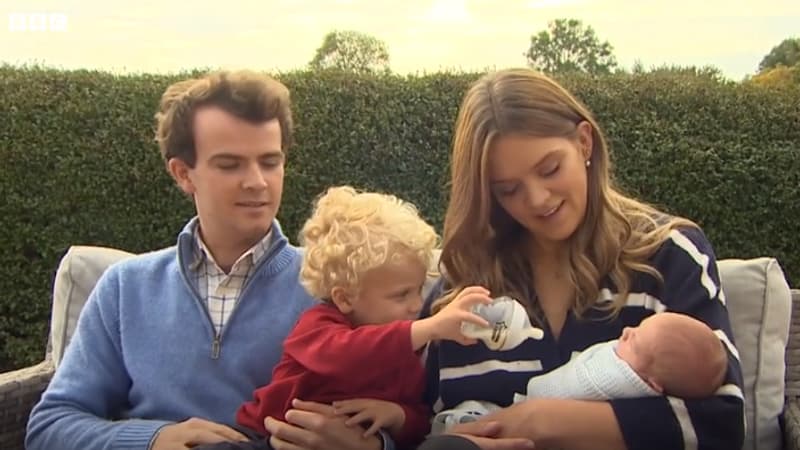Nothing went according to plan for Eilish McKinney. The British woman, who lives in the Northamptonshire region in central England, had to give birth to her son at the nearest hospital. But when the contractions came, the hospital she was supposed to go to, Peterborough City Hospital, was full. Over the phone, the hospital tells her to go to another medical facility, in Leicester.
“I think I told them: ‘Is this a joke?'” he told the BBC.
“Leicester is an hour away and I was really trying not to push at the moment,” he continued.
Then she realizes that she will have to give birth at home, her “worst nightmare”.
“I’ve never felt so sick in my entire life because it’s just this absolute panic that goes through you and makes you go, ‘Okay, what do we do?'” describes Eilish McKinney.
The young woman therefore gave birth to her son, Percy, on the sofa in her living room, with the only help of two paracetamols and the baby’s father.
“The hospital has let us down,” denounces the latter. “It’s about the lives of two people, a mother and a baby, and they don’t have a contingency plan,” adds Tom Blackman.
As Eilish checked the baby’s airway, Tom made sure he wasn’t “bleeding too much.” “I was trying not to think about ‘what if’, but it could have ended very differently…” he told the BBC. The boy was seen by paramedics 10 minutes later.
Crisis of the public health system
The body responsible for Peterborough City Hospital told the BBC it was “sorry to hear the delivery did not go as planned.” A representative added:
“The safety of babies and parents is a priority for us and sometimes it is necessary to ask mothers to use other maternity units if ours reaches capacity.”
The NHS, the UK’s public health system, is facing “the biggest staffing crisis” in its history, according to a UK parliamentary report published in July. This staffing shortage “poses a serious risk” to patient safety in routine and emergency care, the report says. This is due, in particular, to the difficult working conditions and low wages in the sector.
The report explicitly mentions maternity services, “under great pressure, with the departure of more than 500 midwives in a single year”.
“A year ago, the Maternity Safety Commission’s investigation concluded that nearly 2,000 additional midwives and almost 500 obstetricians were needed,” according to the MPs.
Source: BFM TV


